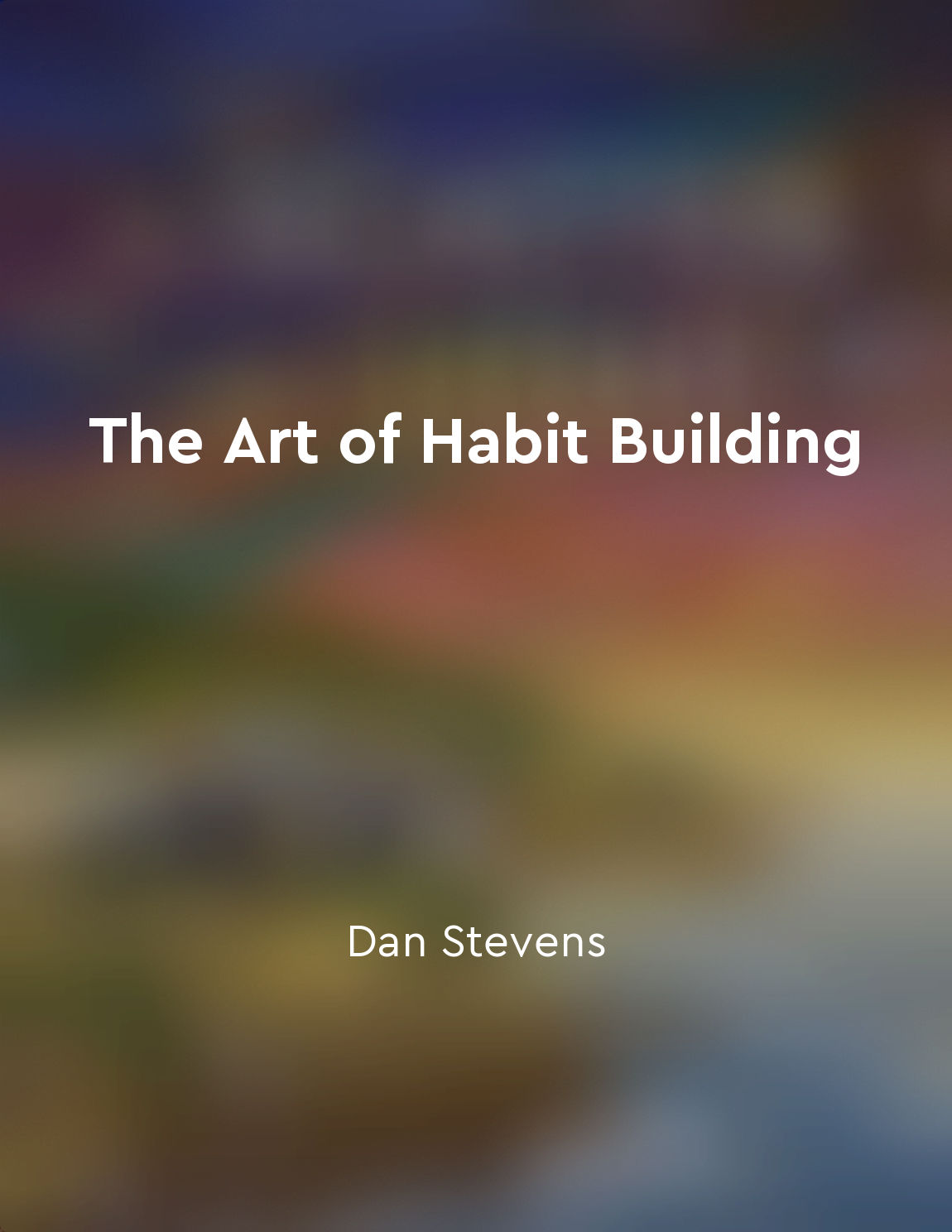Custom and habit influence human actions from "summary" of A Treatise of Human Nature by David Hume
Custom and habit play a significant role in shaping human behavior. These two factors are deeply ingrained in our daily lives, influencing the way we think and act without us even realizing it. Through repetition and familiarity, our minds become accustomed to certain patterns of behavior, leading to the formation of habits that dictate our actions. Custom and habit are powerful forces that guide our decisions and choices, creating a sense of familiarity and comfort in our lives. This sense of familiarity makes us more likely to repeat certain actions, as they have become second nature to us. For example, if we have consistently followed a certain routine in the past, we are likely to continue following it in the future without much thought or deliberation. Moreover, custom and habit also influence our perceptions and beliefs. Our past experiences and interactions shape our understanding of the world, leading us to form certain beliefs and attitudes towards different aspects of life. These beliefs then become ingrained in our minds, influencing the way we perceive and interpret new information. In addition, custom and habit can also affect our emotional responses to certain situations. For instance, if we have repeatedly experienced a certain emotion in response to a particular event, we are more likely to feel the same emotion when faced with a similar situation in the future. This emotional conditioning can have a profound impact on our behavior and decision-making processes.- Custom and habit are powerful forces that shape our thoughts, actions, and perceptions in profound ways. By understanding the influence of these factors on human behavior, we can gain insight into the underlying mechanisms that drive our actions and choices, ultimately leading to a deeper understanding of ourselves and the world around us.
Similar Posts
Be mindful of the correlationcausation fallacy when drawing conclusions
Beware of the correlation-causation fallacy when drawing conclusions. This is a common error that many people make when they as...

Create a routine to support your habits
One key element in building strong habits is to establish a routine that supports your desired behaviors. By creating a consist...
Habit formation is a lifelong journey of selfdiscovery
Habit formation is not just about changing your actions, it's about changing your identity. It's a process of self-discovery, a...
Small victories can create positive feedback loops in the brain
When you achieve a small victory, your brain releases dopamine, the chemical responsible for making you feel good. Dopamine is ...
Setting goals helps maintain focus
In order to maintain focus and resist temptation, setting specific goals is crucial. When you have a clear goal in mind, your b...
Use implementation intentions to plan for obstacles
When it comes to creating new habits, it is essential to plan for obstacles that might come your way. One way to do this is by ...
Actions have consequences that ripple through society
The deeds of every individual have repercussions that extend far beyond the boundaries of his own existence. Each action, no ma...
The Plateau of Latent Potential is a crucial point in habit formation
One of the most crucial points in the process of habit formation is what I call the Plateau of Latent Potential. This is the po...
Positive experiences can facilitate change
Positive experiences can facilitate change. When people experience positive emotions and feelings, they are more open to new id...
Changing one small habit can lead to big changes
The idea that changing one small habit can lead to big changes is a central theme in "The Power of Habit." This concept is base...

